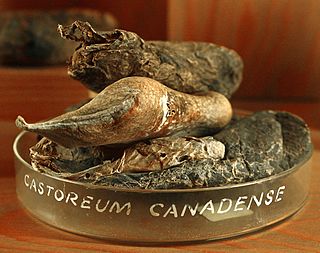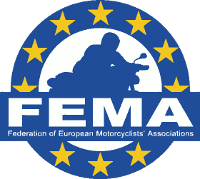
The Federal Emergency Management Agency (FEMA) is an agency of the United States Department of Homeland Security, initially created by Presidential Reorganization Plan No. 3 of 1978 and implemented by two Executive Orders on April 1, 1979. The agency's primary purpose is to coordinate the response to a disaster that has occurred in the United States and that overwhelms the resources of local and state authorities. The governor of the state in which the disaster occurs must declare a state of emergency and formally request from the president that FEMA and the federal government respond to the disaster. The only exception to the state's gubernatorial declaration requirement occurs when an emergency or disaster takes place on federal property or to a federal asset—for example, the 1995 bombing of the Alfred P. Murrah Federal Building in Oklahoma City, Oklahoma, or the Space Shuttle Columbia in the 2003 return-flight disaster.

Diacetyl (IUPAC systematic name: butanedione or butane-2,3-dione) is an organic compound with the chemical formula (CH3CO)2. It is a yellow or green liquid with an intensely buttery flavor. It is a vicinal diketone (two C=O groups, side-by-side) with the molecular formula C4H6O2. Diacetyl occurs naturally in alcoholic beverages and is added to some foods to impart its buttery flavor.

A motorcycle club is a group of individuals whose primary interest and activities involve motorcycles. A motorcycle group can range as clubbed groups of different bikes or bikers who own same model of vehicle like the Harley Owners Group.

Street legal or road going refers to a vehicle such as an automobile, motorcycle, or light truck that is equipped and licensed for use on public roads, being therefore roadworthy. This will require specific configurations of lighting, signal lights, and safety equipment. Some specialty vehicles that will not be operated on roads therefore do not need all the features of a street-legal vehicle; examples are a vehicle used only off-road that is trailered to its off-road operating area, and a race car that is used only on closed race tracks and therefore does not need all the features of a street-legal vehicle. As well as motor vehicles, the street-legal distinction applies in some jurisdictions to track bicycles that lack street-legal brakes and lights. Street legality rules can even affect race car helmets, which possess visual fields too narrow for use on an open road without the risk of missing a fast-moving vehicle.

Emergency management is the organization and management of the resources and responsibilities for dealing with all humanitarian aspects of emergencies. The aim is to reduce the harmful effects of all hazards, including disasters.

Lactisole is a carboxylic acid salt. Like gymnemic acid, it is a sweet inhibitor or taste modifier.

Castoreum is a yellowish exudate from the castor sacs of the mature North American beaver and the European beaver.
The Foreign Exchange Management Act, 1999 (FEMA) is an Act of the Parliament of India "to consolidate and amend the law relating to foreign exchange with the objective of facilitating external trade and payments and for promoting the orderly development and maintenance of foreign exchange market in India". It was passed in the winter session of Parliament in 1999, replacing the Foreign Exchange Regulation Act (FERA). This act makes offences related to foreign exchange civil offenses. It extends to the whole of India., replacing FERA, which had become incompatible with the pro-liberalization policies of the Government of India. It enabled a new foreign exchange management regime consistent with the emerging framework of the World Trade Organization (WTO). It also paved the way for the introduction of the Prevention of Money Laundering Act, 2002, which came into effect from 1 July 2005.

The National Interagency Fire Center (NIFC) in Boise, Idaho is the physical facility which is the home to the National Interagency Coordination Center (NICC), and the National Multi-Agency Coordination group.

A FEMA Urban Search and Rescue Task Force is a team of individuals specializing in urban search and rescue, disaster recovery, and emergency triage and medicine. The teams are deployed to emergency and disaster sites within six hours of notification. The Federal Emergency Management Agency (FEMA) created the Task Force concept to provide support for large scale disasters in the United States. FEMA provides financial, technical and training support for the Task Forces as well as creating and verifying the standards of Task Force personnel and equipment.

The Federation of European Motorcyclists' Associations (FEMA) is a motorcycling advocacy group based in Brussels, Belgium. It was formed on 10 January 1998 from a merger of the Federation of European Motorcyclists (FEM) and the European Motorcyclists' Association (EMA).
The Flavor and Extract Manufacturers Association (FEMA) of the United States was founded in 1909 by several flavor firms in response to the passage of the Pure Food and Drug Act of 1906. Founding members were McCormick & Company, Ulman Driefus & Company, Jones Brothers, Blanke Baer Chemical Company, Frank Tea & Spice Company, Foote & Jenkes, Sherer Gillett Company, and C.F. Sauer Company.

The State Guard Association of the United States (SGAUS) is a non-profit organization advocating for the advancement and support of regulated state military forces, as established by state governments under the authority of federal law. The SGAUS encourages the establishment and advancement of regulated state forces through lobbying and affiliation with independent state associations. There were twenty-two independent SGAUS recognized state associations in 2008. State associations are separate entities—typically 501(c)(3) corporations—and are not components of the SGAUS corporation, the SGAUS Foundation, or the respective states. When petitioned, the SGAUS recognizes lawful, state-level associations with twenty-five or more members who are seeking to establish state defense forces.

Acmella oleracea is a species of flowering herb in the family Asteraceae. Common names include toothache plant, paracress, Sichuan buttons, buzz buttons, tingflowers and electric daisy. Its native distribution is unclear, but it is likely derived from a Brazilian Acmella species. It is grown as an ornamental and attracts fireflies when in bloom. It is used as a medicinal remedy in various parts of the world. A small, erect plant, it grows quickly and bears gold and red inflorescences. It is frost-sensitive but perennial in warmer climates.
The Appellate Tribunal for Foreign Exchange, also known as the FEMA Tribunal, is the Indian Tribunal for violations of its Foreign Exchange Laws. Officer are drawn from the IRS and IPS.
The Federation of European Motorcyclists (FEM) was a motorcycling advocacy group based in Brussels, Belgium. It was formed in 1988 by representatives of various national motorcyclists' representative organisations at a meeting in Strasbourg which followed the 'Eurodemo' of that year, a major demonstration by motorcyclists against what they perceived to be anti-biker European legislation. FEM's first General Secretary was the Briton Frank Pearson who served in the post until 1992 when he was succeeded by another Briton, Simon Milward. The Federation of European Motorcyclists merged with the European Motorcyclists' Association on 10 January 1998 to form the Federation of European Motorcyclists Associations (FEMA).
Speciality chemicals are particular chemical products which provide a wide variety of effects on which many other industry sectors rely. Some of the categories of speciality chemicals are adhesives, agrichemicals, cleaning materials, colors, cosmetic additives, construction chemicals, elastomers, flavors, food additives, fragrances, industrial gases, lubricants, paints, polymers, surfactants, and textile auxiliaries. Other industrial sectors such as automotive, aerospace, food, cosmetics, agriculture, manufacturing, and textiles are highly dependent on such products.

Cyclamen aldehyde is a fragrance molecule which has been used in soaps, detergents, lotions, and perfumes since the 1920s. It was granted generally recognized as safe (GRAS) status by Flavor and Extract Manufacturers Association (FEMA) in 1965 and is approved by the Food and Drug Administration for food use in the United States. The Council of Europe (1970) included cyclamen aldehyde in the list of admissible artificial flavoring substances, at a level of 1 ppm.

N,N-Dimethylphenethylamine (N,N-DMPEA) is a substituted phenethylamine that is used as a flavoring agent. It is an alkaloid that was first isolated from the orchid Eria jarensis. Its aroma is described as "sweet, fishy". It is mainly used in cereal, cheese, dairy products, fish, fruit and meat. It is also being used in pre-workout and bodybuilding supplements with claims of a stimulant effect.













